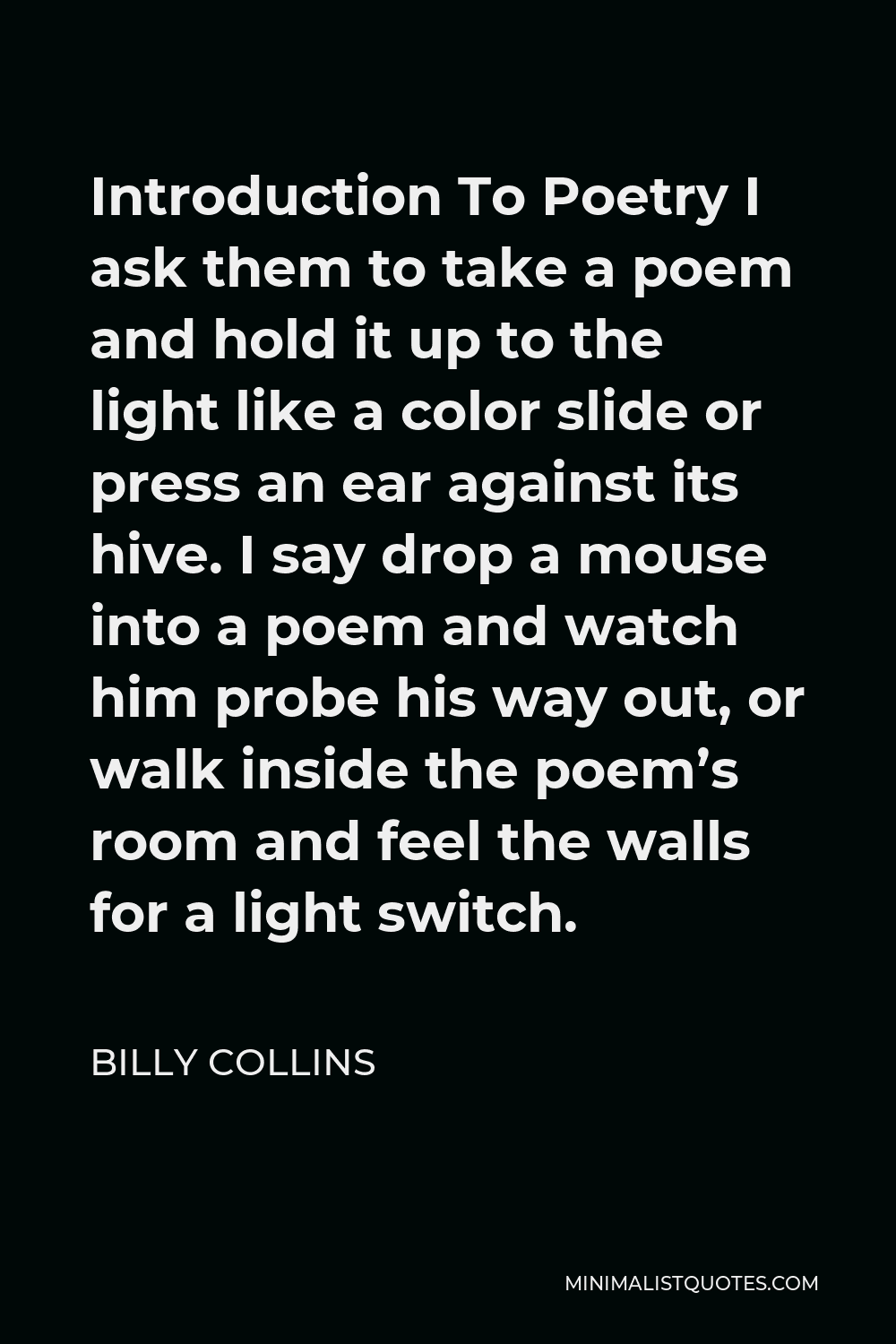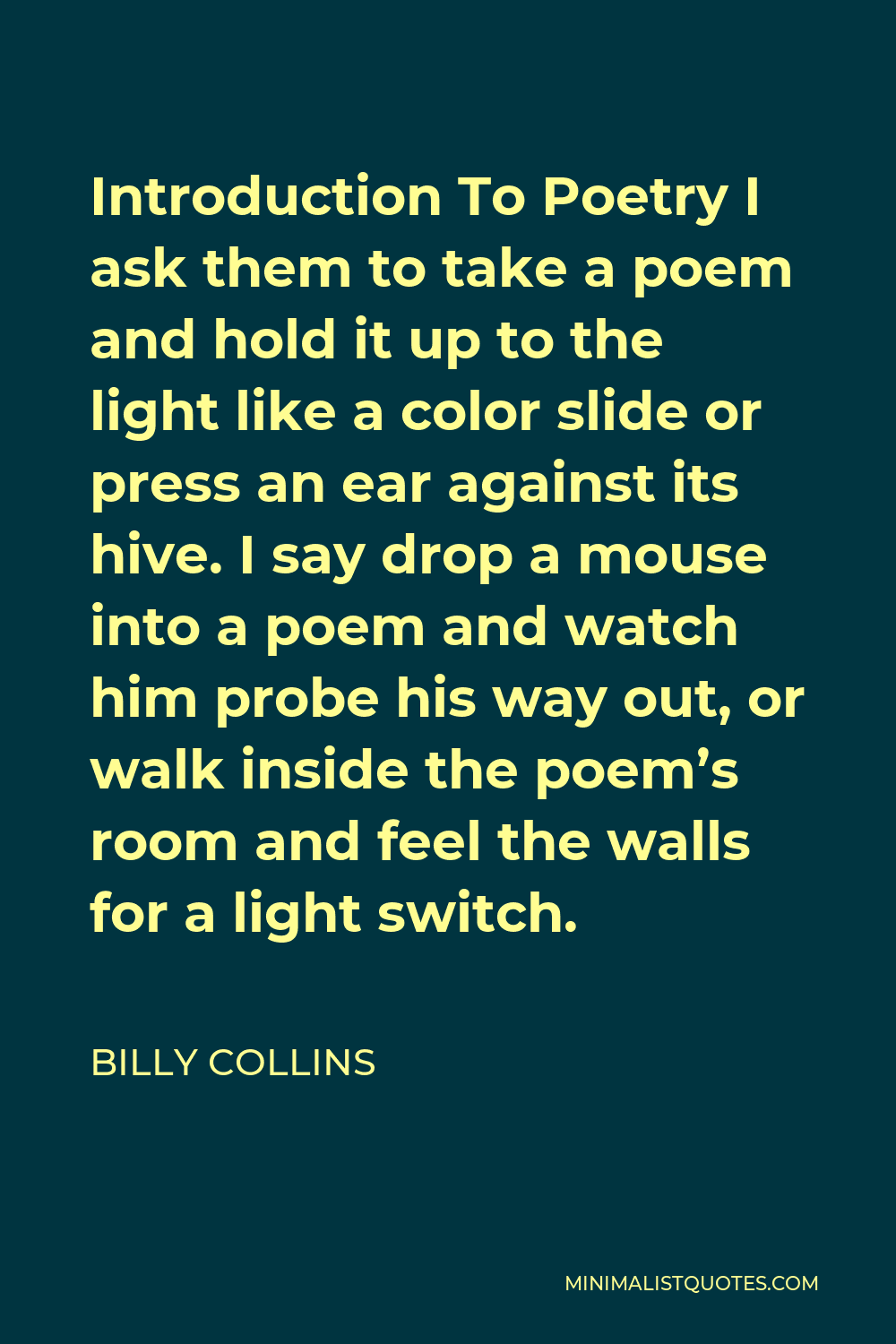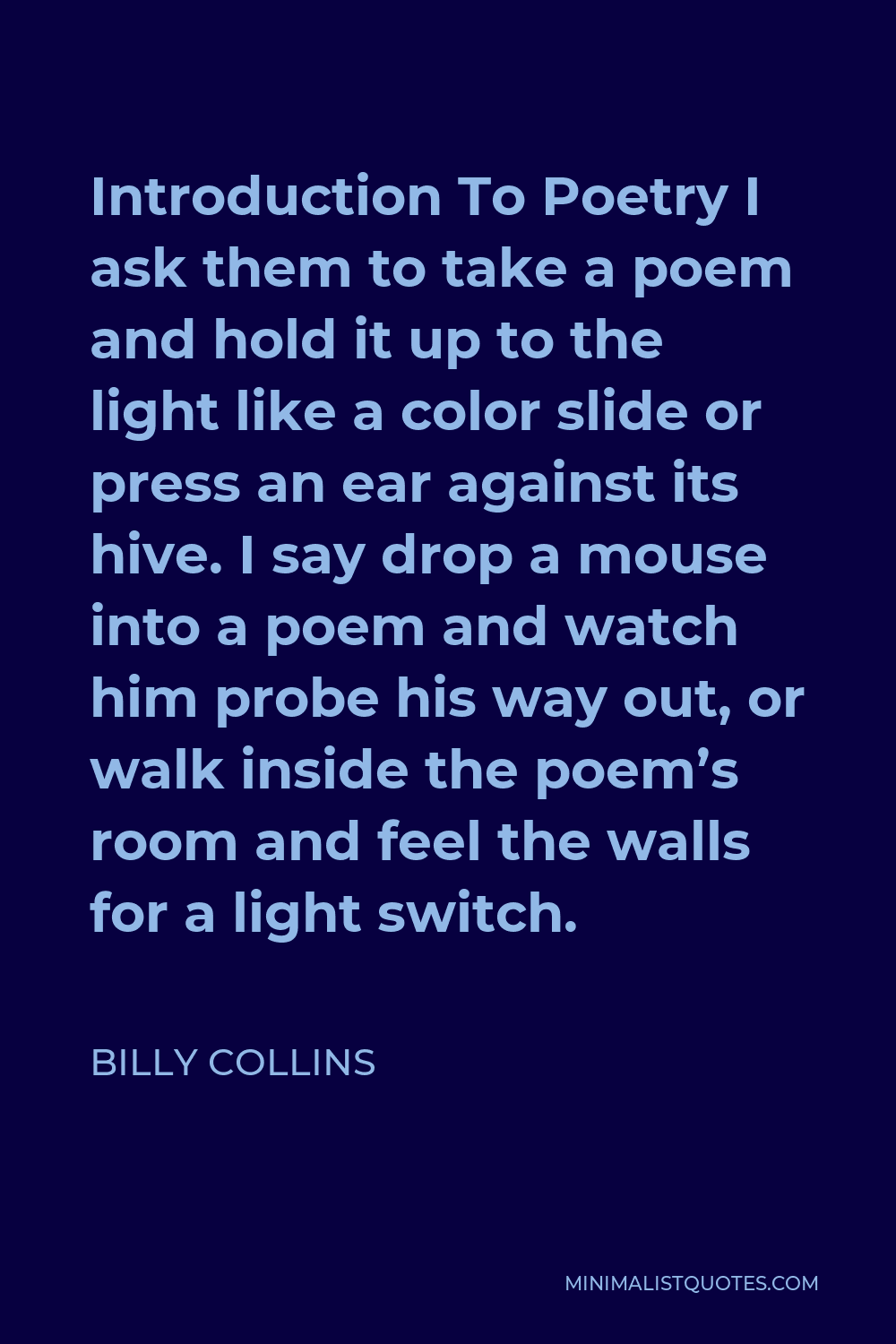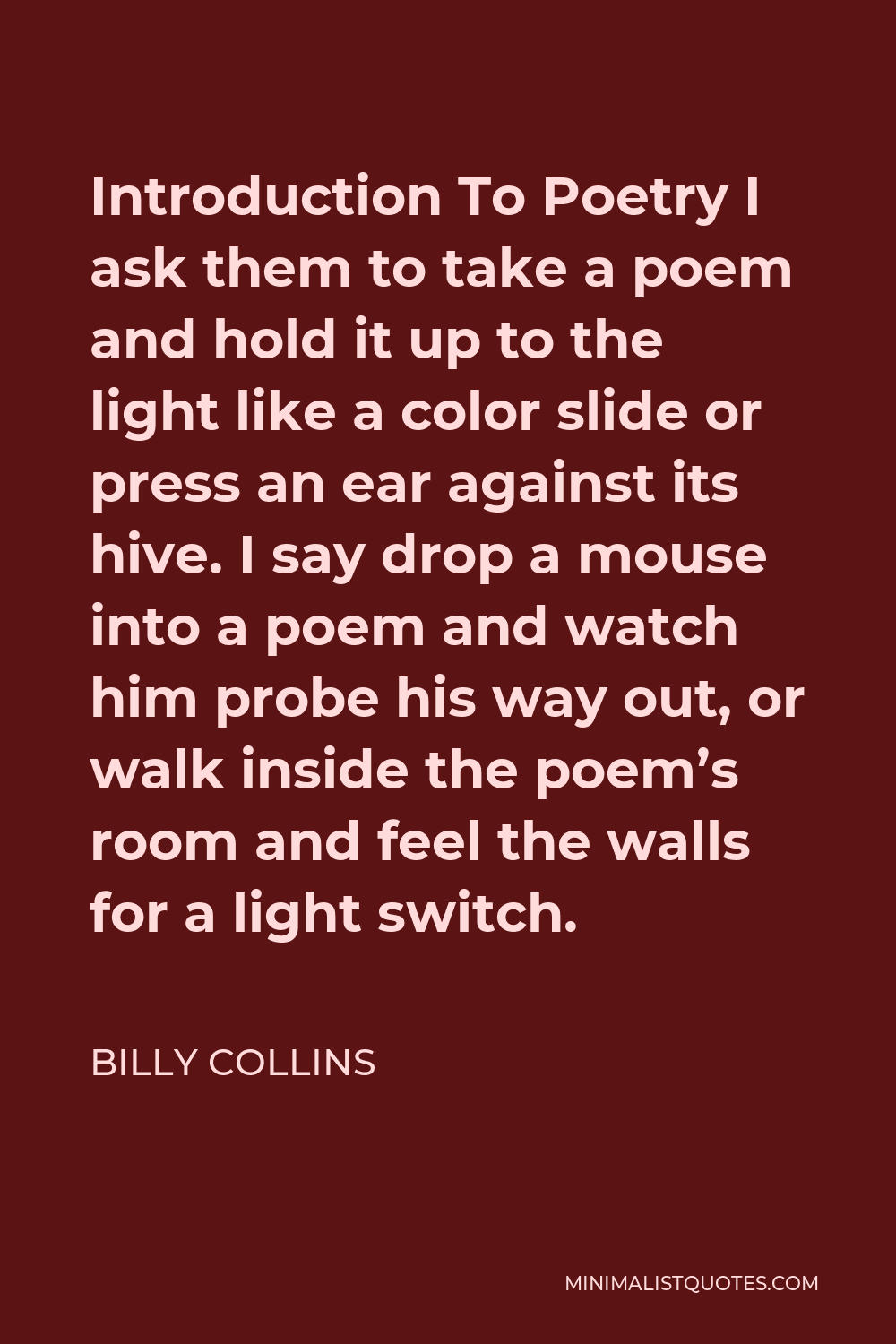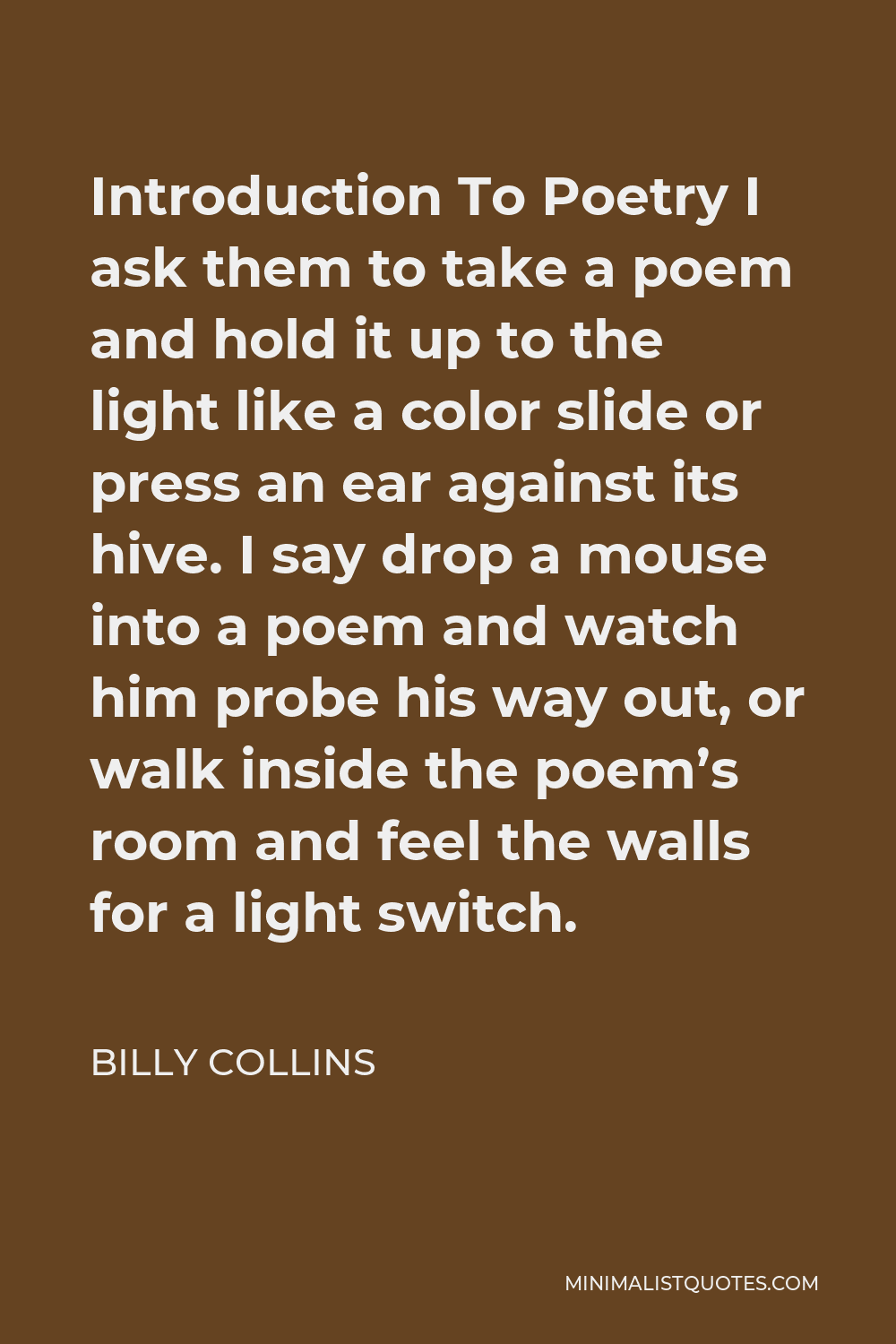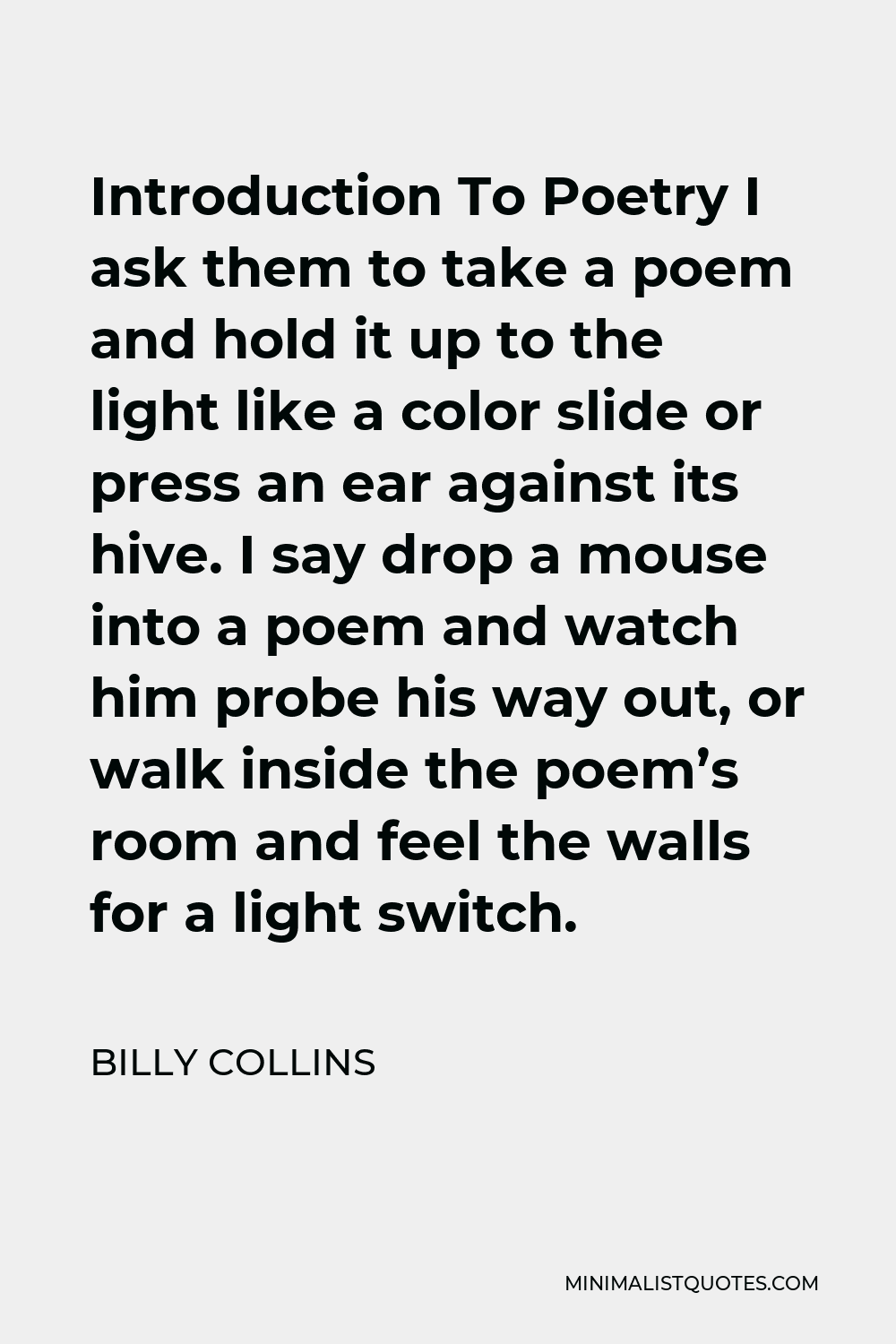I want them to waterski across the surface of a poem waving at the author’s name on the shore. But all they want to do is tie the poem to a chair with rope and torture a confession out of it. They begin beating it with a hose to find out what it really means.
BILLY COLLINSIntroduction To Poetry I ask them to take a poem and hold it up to the light like a color slide or press an ear against its hive. I say drop a mouse into a poem and watch him probe his way out, or walk inside the poem’s room and feel the walls for a light switch.
More Billy Collins Quotes
-





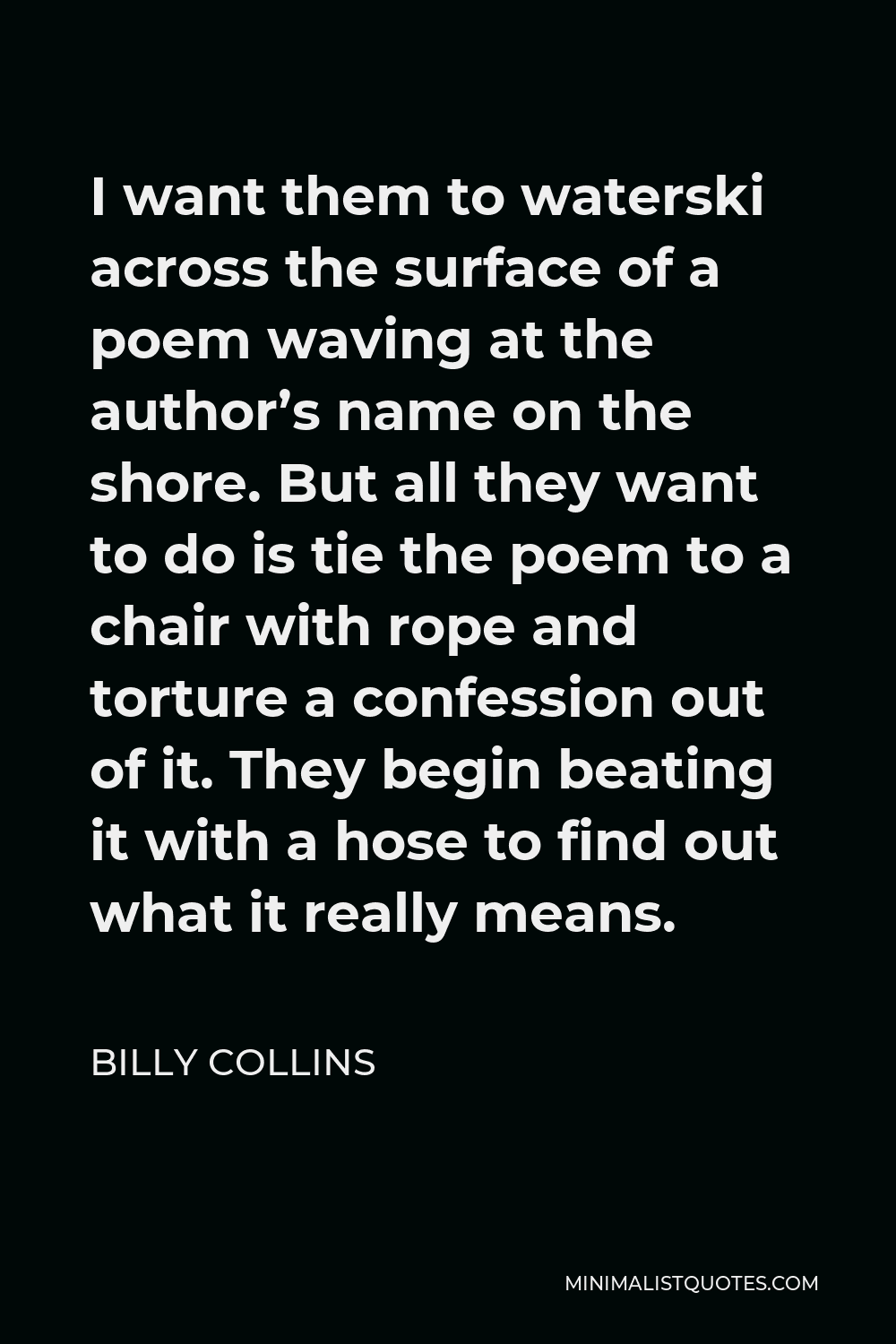
-





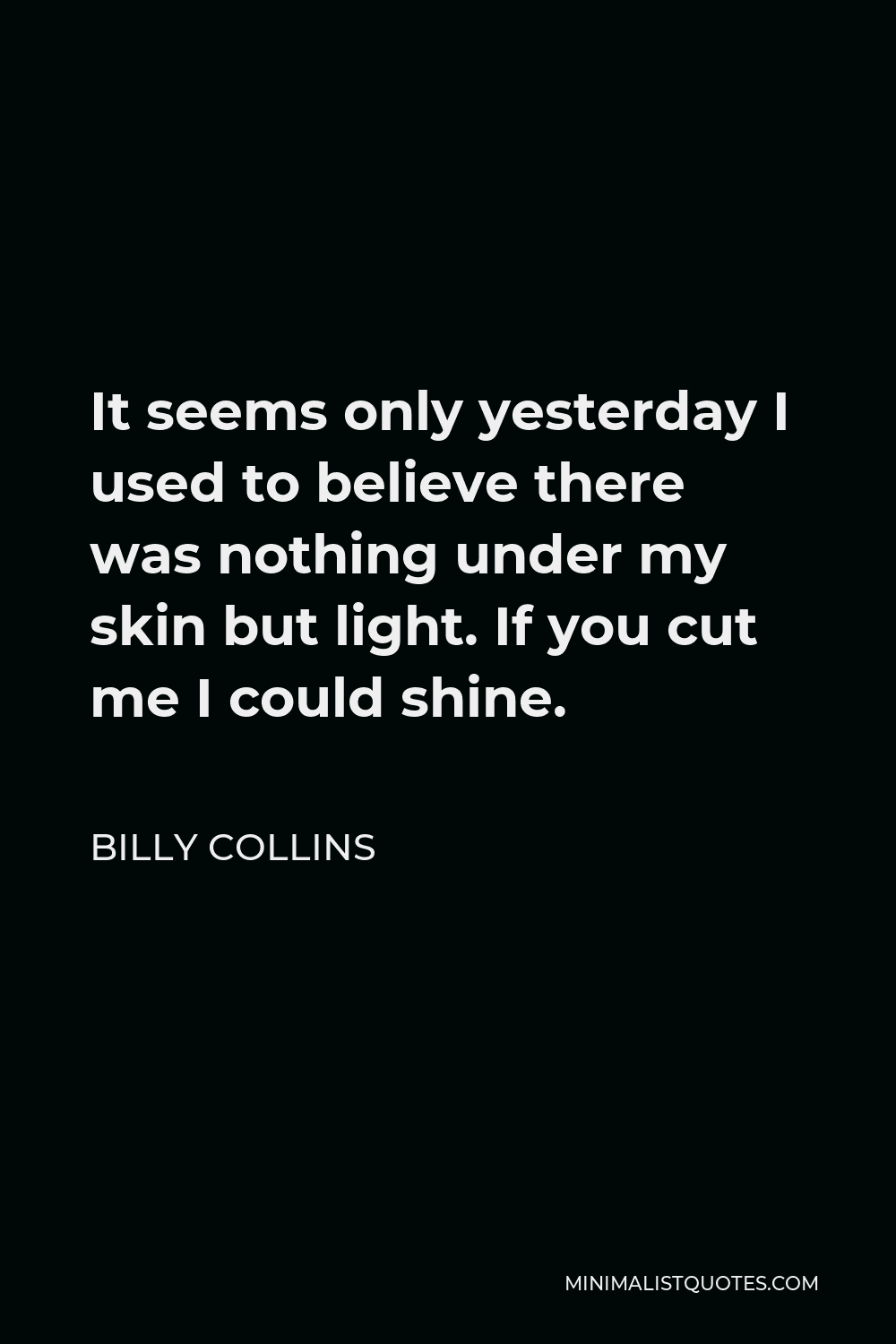
It seems only yesterday I used to believe there was nothing under my skin but light. If you cut me I could shine.
BILLY COLLINS -





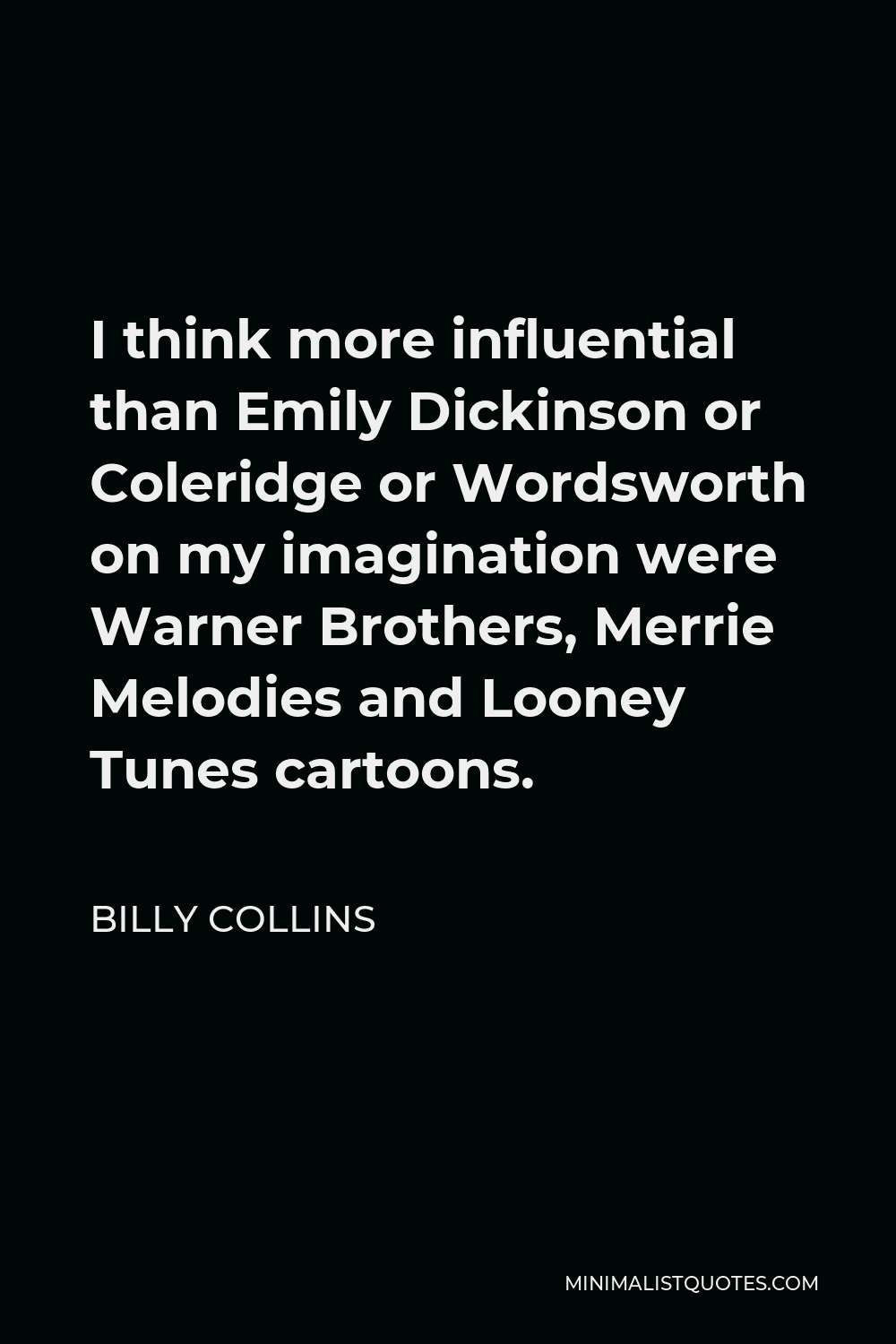
I think more influential than Emily Dickinson or Coleridge or Wordsworth on my imagination were Warner Brothers, Merrie Melodies and Looney Tunes cartoons.
BILLY COLLINS -





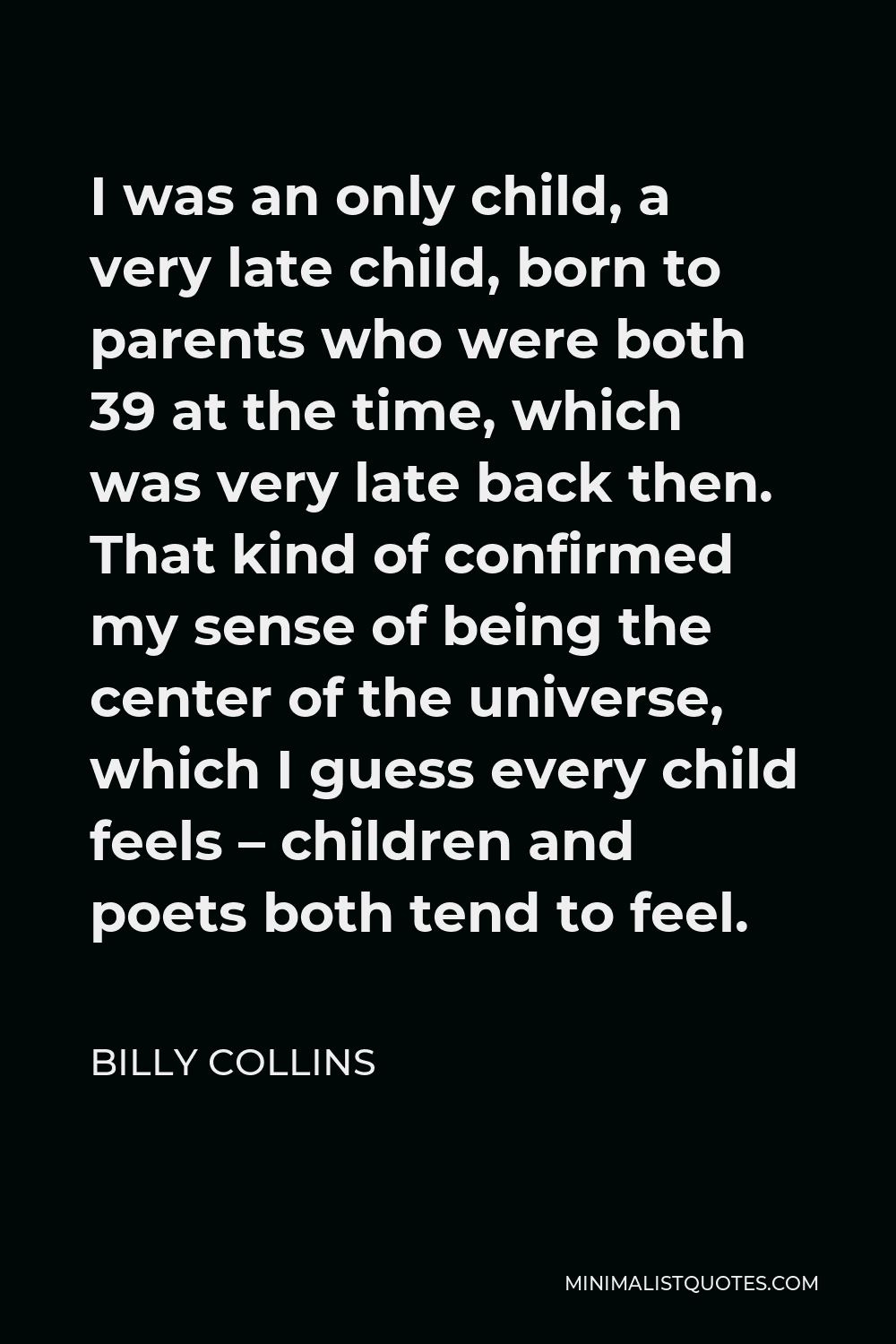
I was an only child, a very late child, born to parents who were both 39 at the time, which was very late back then. That kind of confirmed my sense of being the center of the universe, which I guess every child feels – children and poets both tend to feel.
BILLY COLLINS -





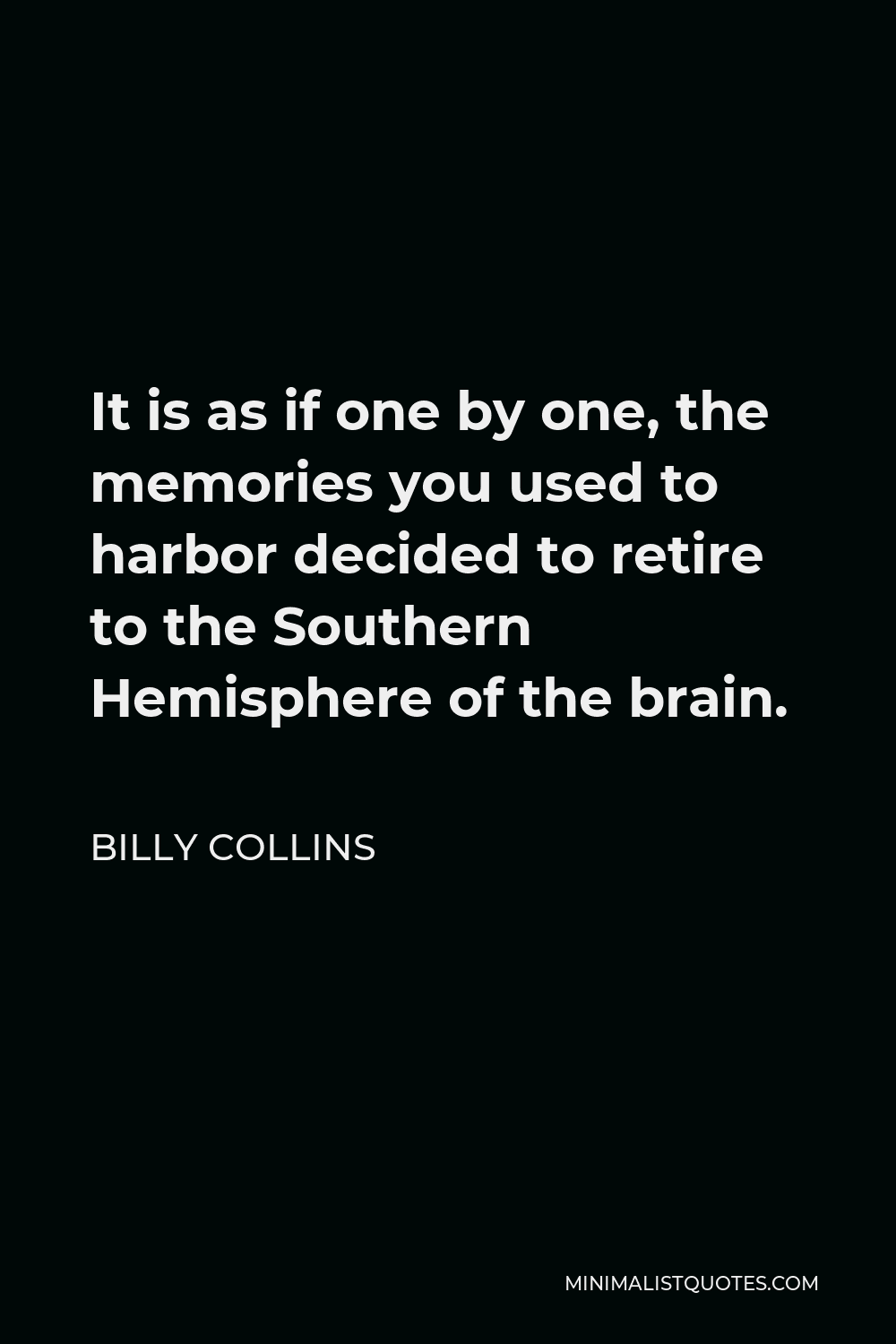
It is as if one by one, the memories you used to harbor decided to retire to the Southern Hemisphere of the brain.
BILLY COLLINS -





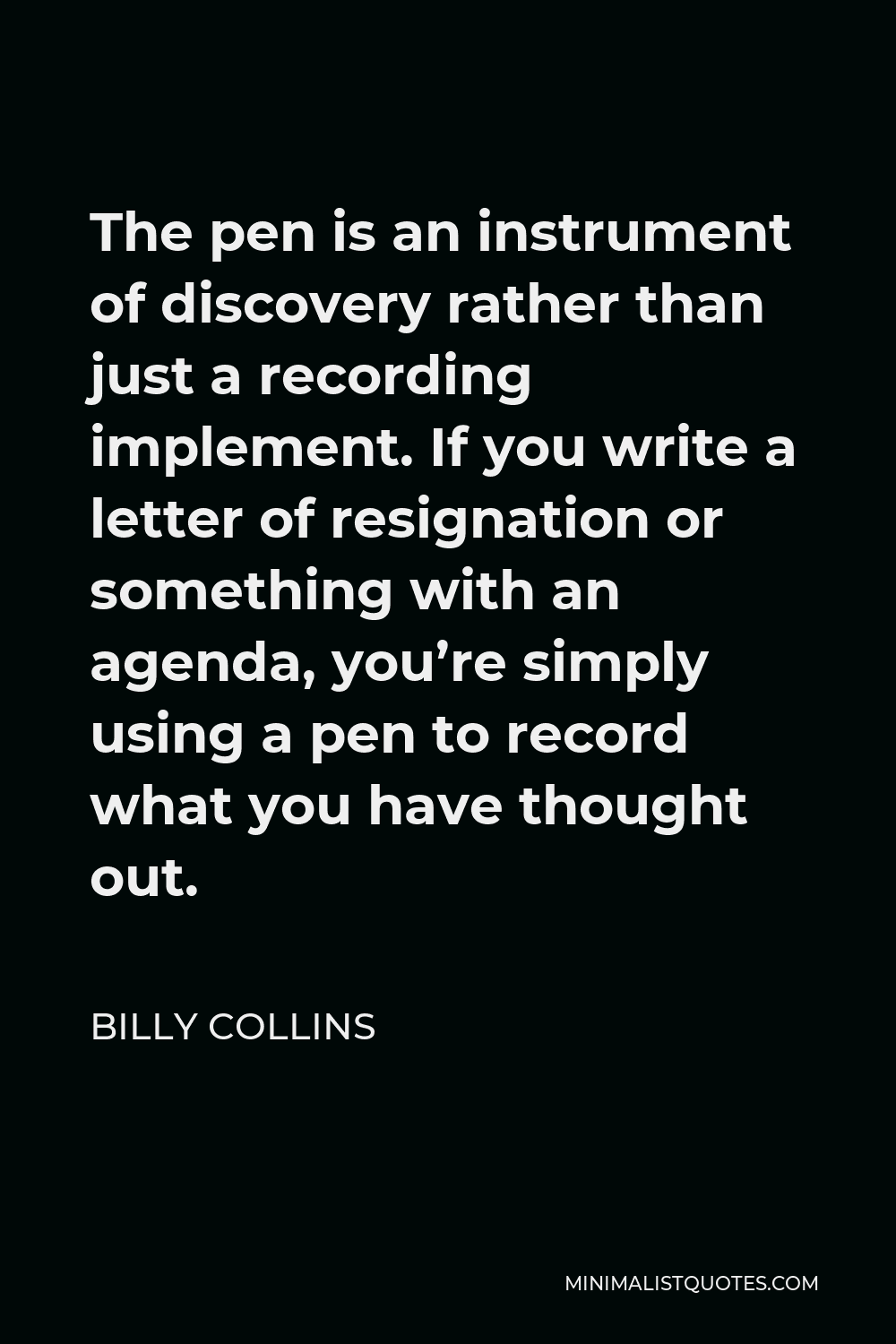
The pen is an instrument of discovery rather than just a recording implement. If you write a letter of resignation or something with an agenda, you’re simply using a pen to record what you have thought out.
BILLY COLLINS -





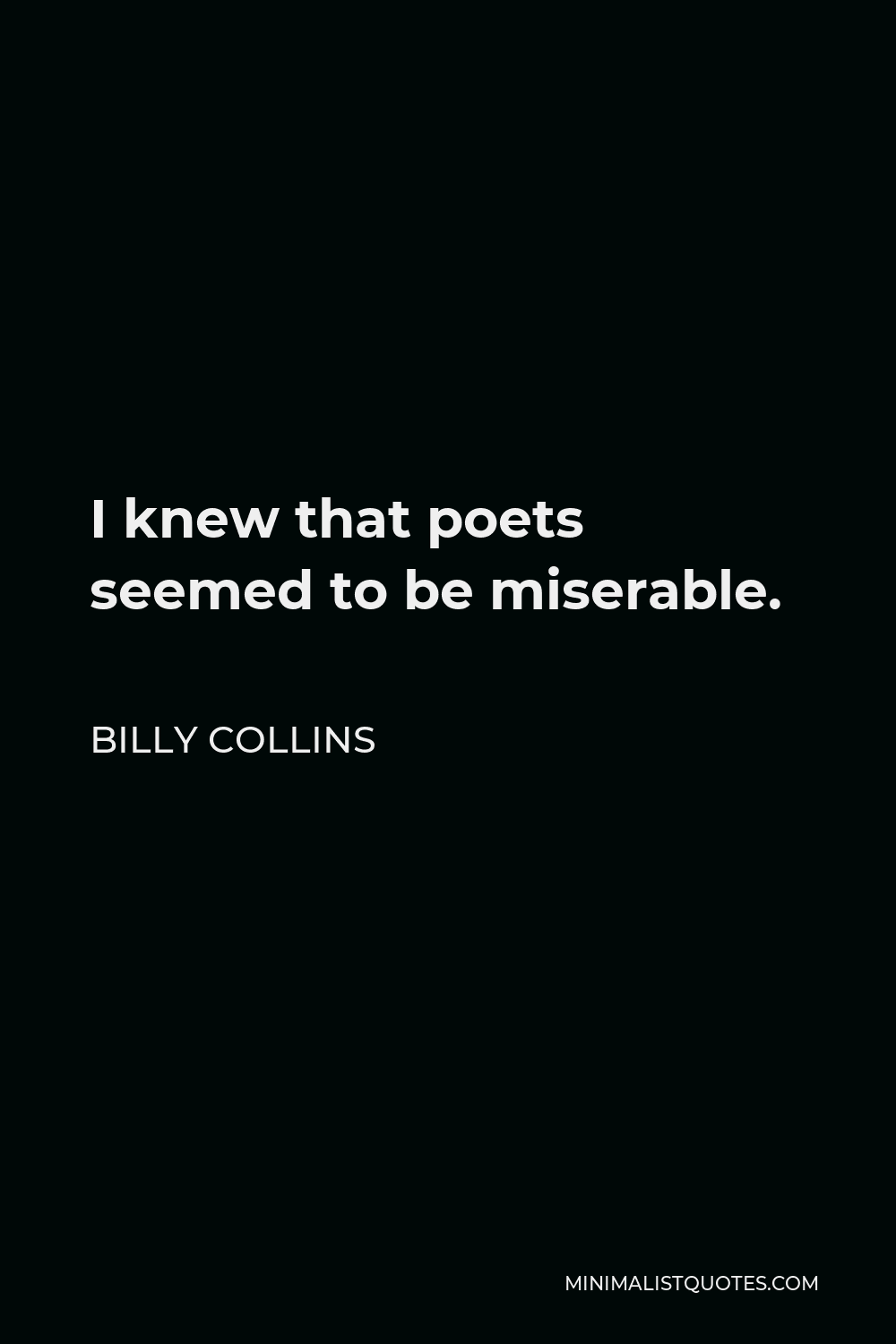
I knew that poets seemed to be miserable.
BILLY COLLINS -





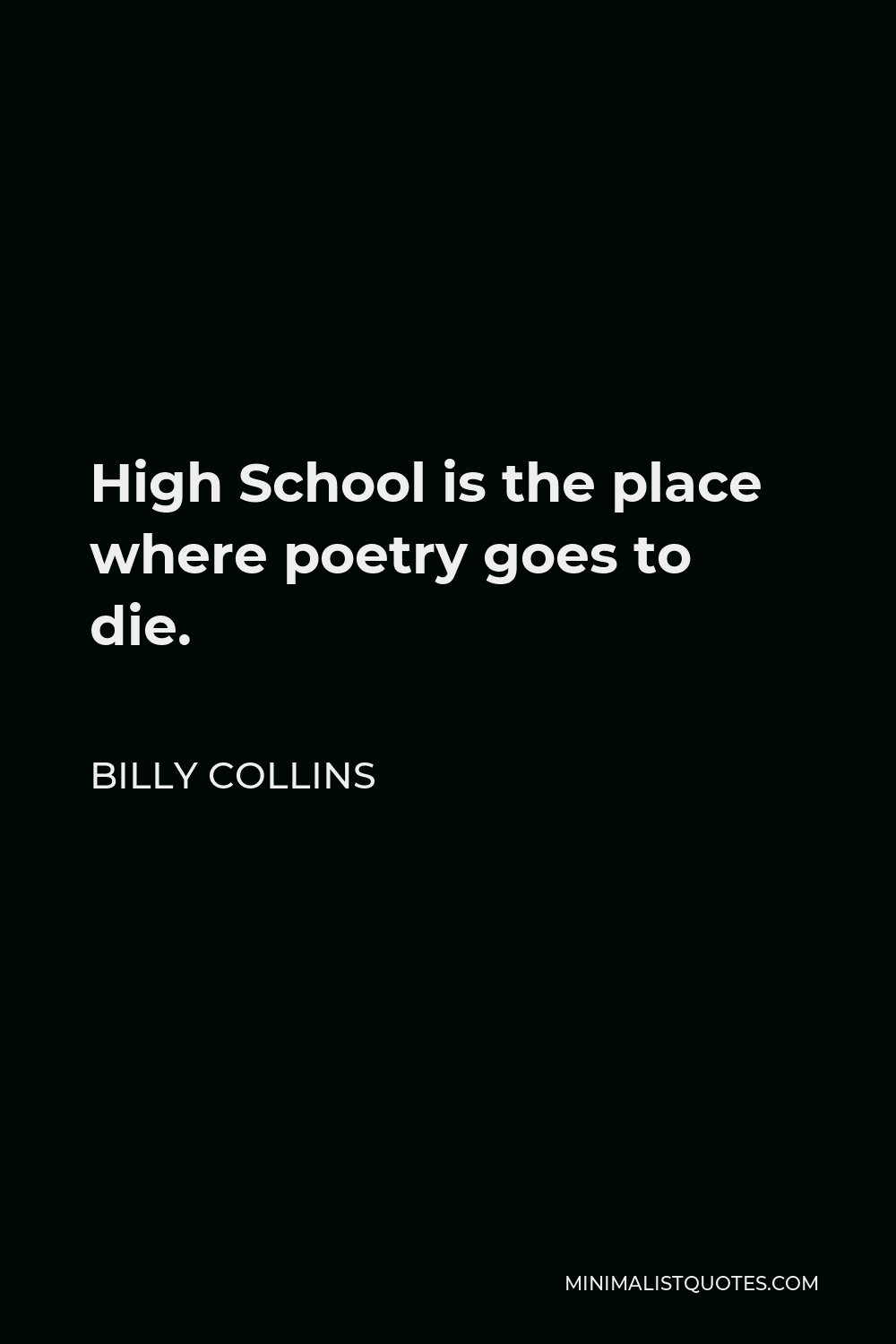
High School is the place where poetry goes to die.
BILLY COLLINS -





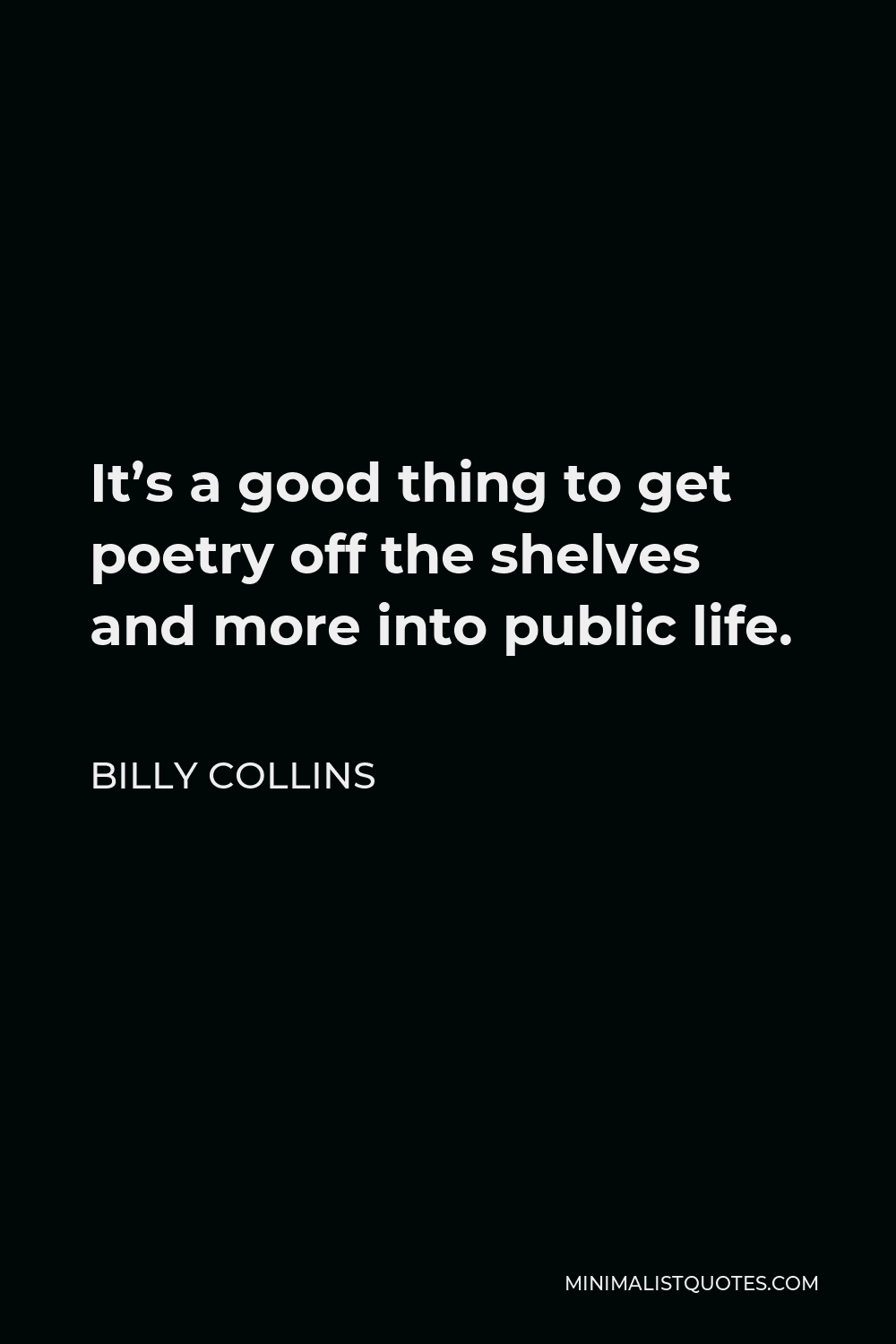
It’s a good thing to get poetry off the shelves and more into public life.
BILLY COLLINS -





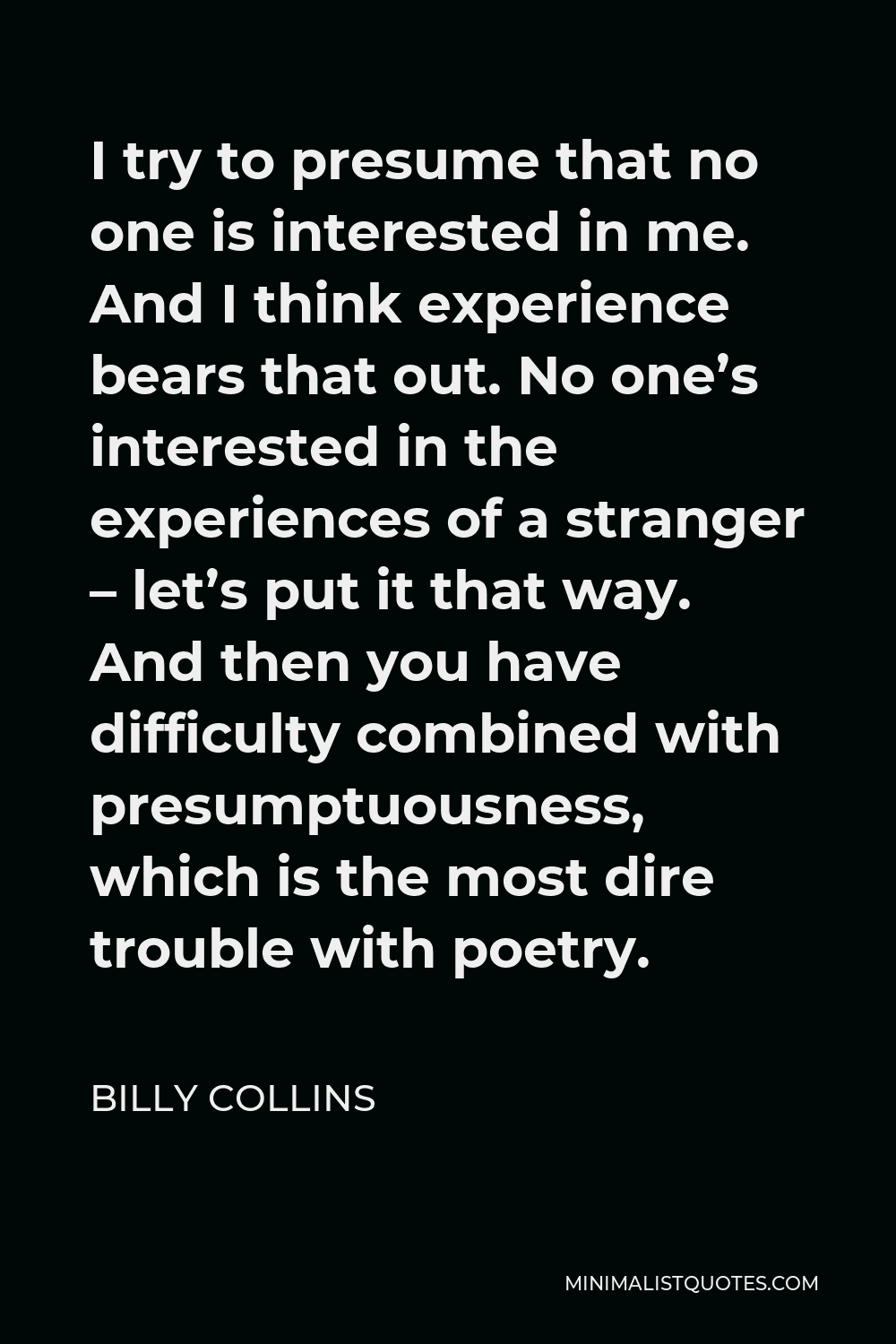
I try to presume that no one is interested in me. And I think experience bears that out. No one’s interested in the experiences of a stranger – let’s put it that way. And then you have difficulty combined with presumptuousness, which is the most dire trouble with poetry.
BILLY COLLINS -






I have one of these early memories where I’m in the back of my parents’ car, a place I loved to spend a lot of time as an only child, not having to fight with venomous siblings over the only toy.
BILLY COLLINS -





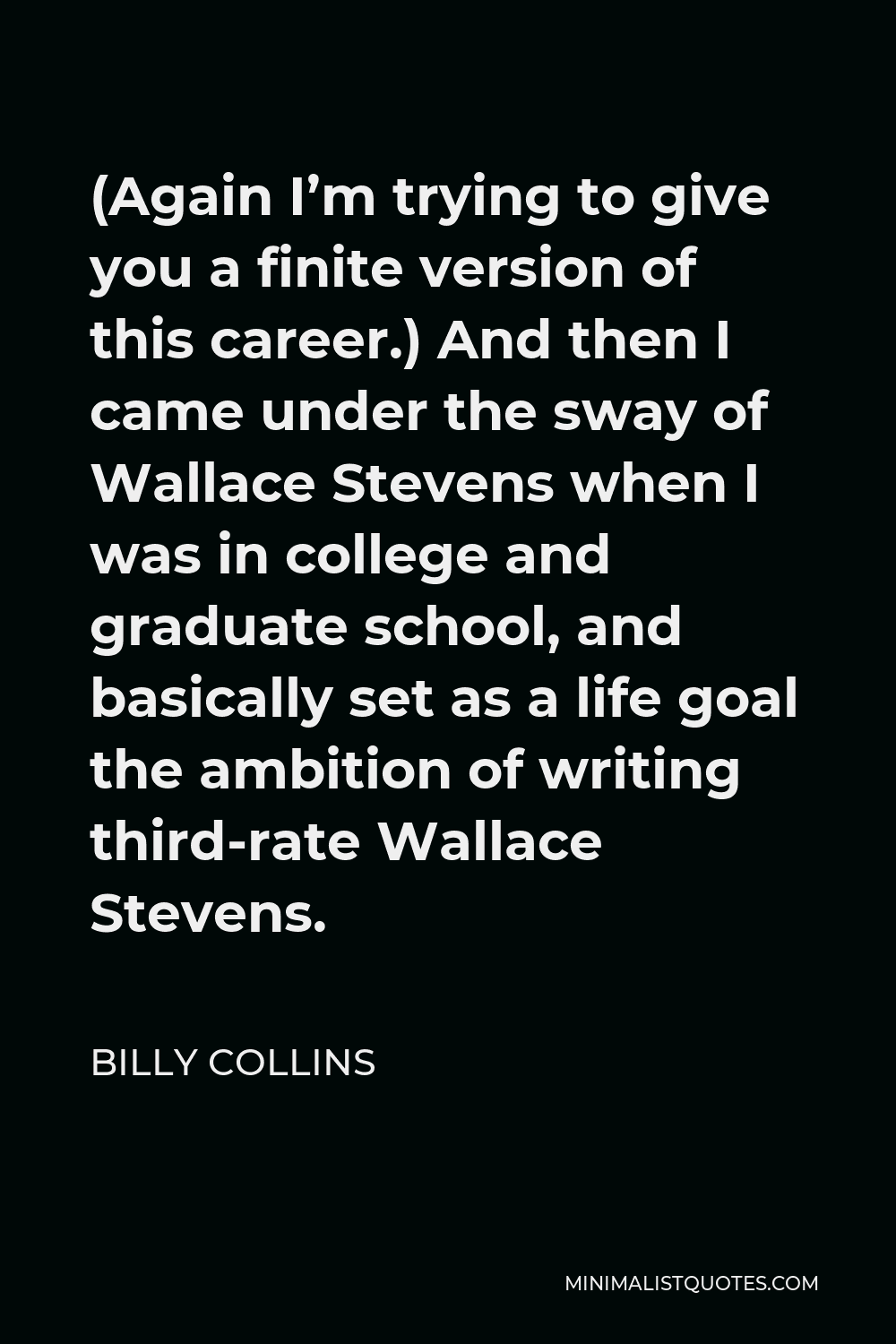
(Again I’m trying to give you a finite version of this career.) And then I came under the sway of Wallace Stevens when I was in college and graduate school, and basically set as a life goal the ambition of writing third-rate Wallace Stevens.
BILLY COLLINS -





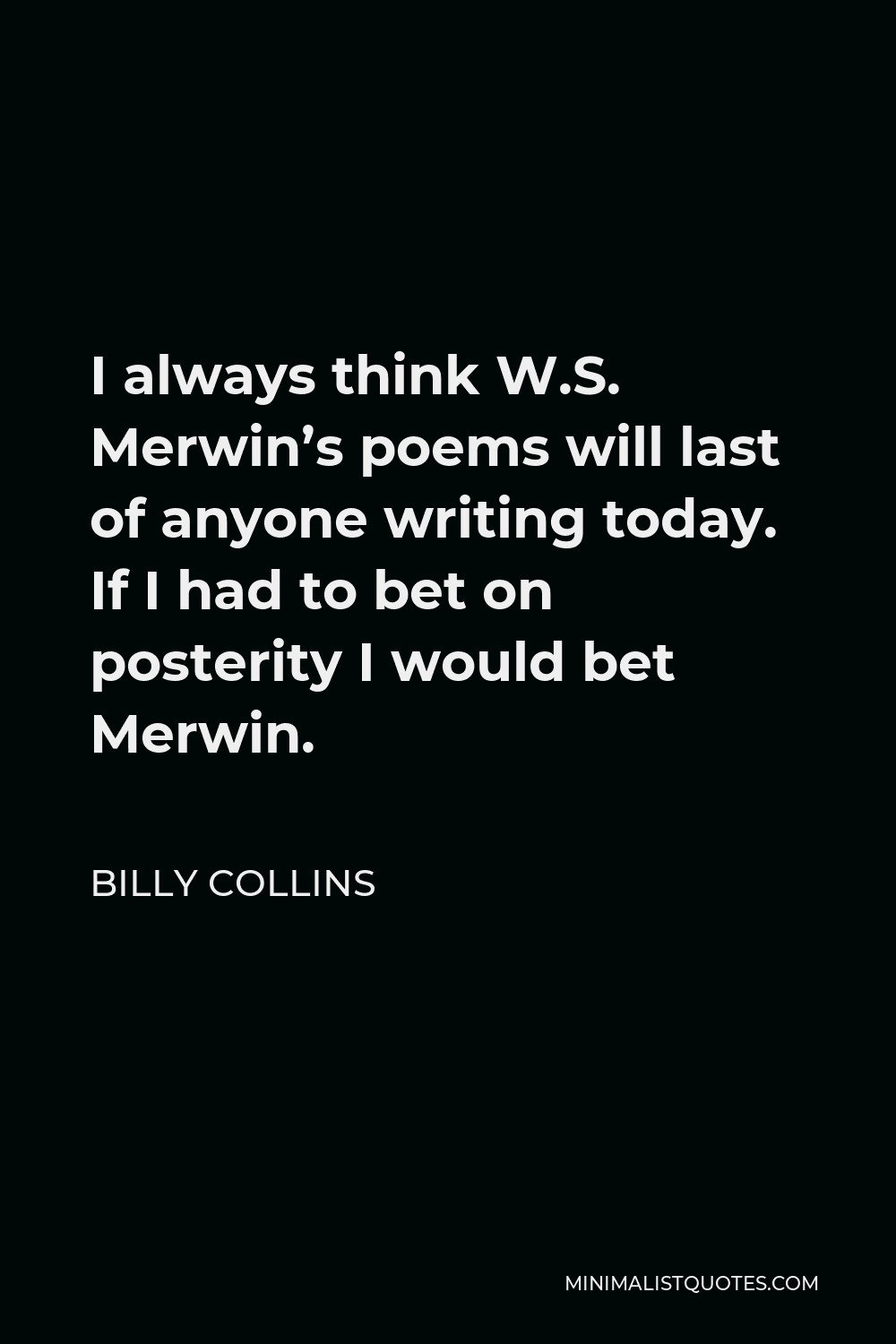
I always think W.S. Merwin’s poems will last of anyone writing today. If I had to bet on posterity I would bet Merwin.
BILLY COLLINS -





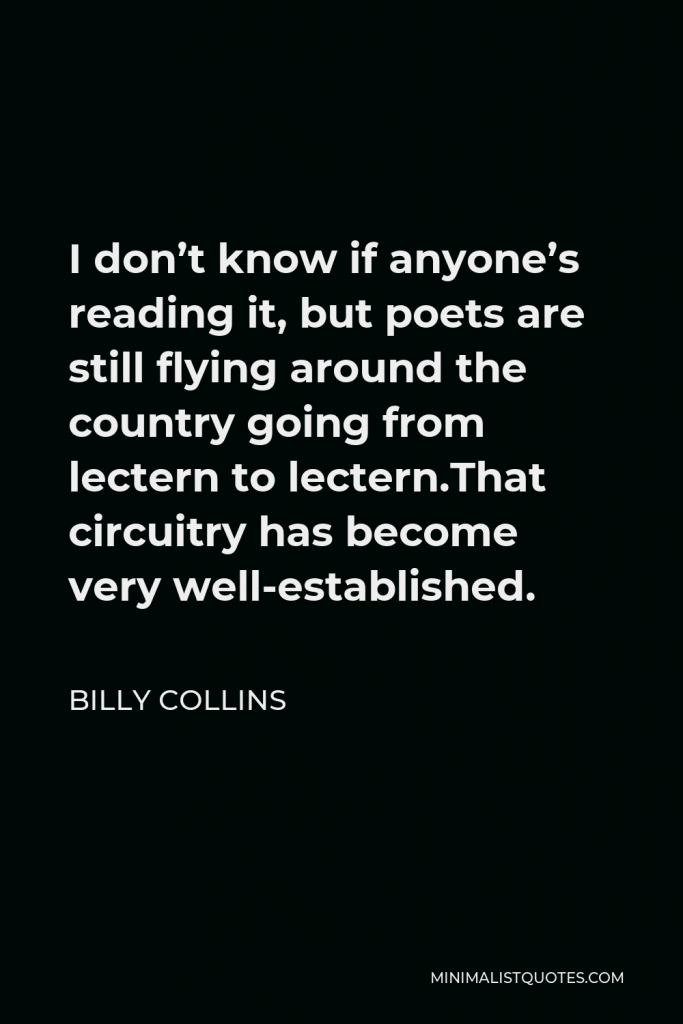

I don’t know if anyone’s reading it, but poets are still flying around the country going from lectern to lectern.That circuitry has become very well-established.
BILLY COLLINS -





![Billy Collins Quote - When you get a poem [in a public place], it happens to you so suddenly that you don’t have time to deploy your anti-poetry deflector shields that were installed in high school.](https://minimalistquotes.com/images/when-you-get-a-poem-in-a-public-place-it-happens-t.jpg)
When you get a poem [in a public place], it happens to you so suddenly that you don’t have time to deploy your anti-poetry deflector shields that were installed in high school.
BILLY COLLINS -





![Billy Collins Quote - I felt at some point that I had nothing to lose, and [laughs] maybe I was wrong. I think, you know, there’s always these little autobiographical secrets behind things. I think I was really attacking my earlier self, and this kind of pretentious figure.](https://minimalistquotes.com/images/i-felt-at-some-point-that-i-had-nothing-to-lose-an.jpg)
I felt at some point that I had nothing to lose, and [laughs] maybe I was wrong. I think, you know, there’s always these little autobiographical secrets behind things. I think I was really attacking my earlier self, and this kind of pretentious figure.
BILLY COLLINS
